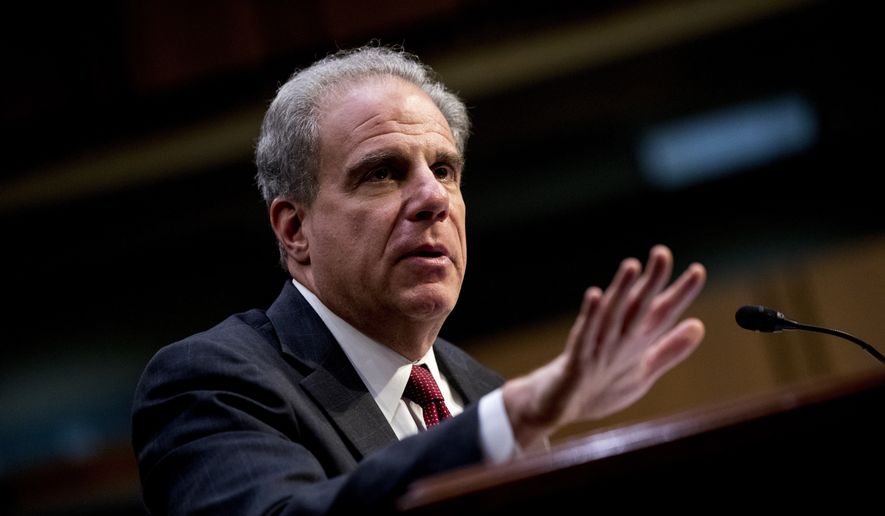Civil liberties groups are calling for reforms of the Foreign Intelligence Surveillance Act after an inspector general’s report detailed a slew of errors in the FBI’s surveillance of associates affiliated with President Trump’s 2016 campaign.
The American Civil Liberties Union sent a letter to the Senate Judiciary Committee the same day Justice Department Inspector General Michael Horowitz testified about the FBI’s botched application to the secret FISA court for a warrant to wiretap Trump campaign associate Carter Page.
The advocacy group says if these errors can occur in such a high profile investigation, they could happen — and likely have — in other probes into average citizens such as racial minorities, Muslims and political activists.
“The IG report should serve as a wake-up call and prompt urgent action from Congress to reform our intelligence laws and practices,” the group told the lawmakers in the letter.
The ACLU suggests increased accountability and oversight could be produced if the law is amended to allow individuals who are prosecuted with the help of FISA surveillance to review government orders and applications. The ACLU also says individuals should be given notice once surveillance has ended, and the law should ensure the government has procedures in place to purge irrelevant information that’s collected.
Advocacy groups are pushing for these transparency reforms ahead of the debate in the coming months over provisions of the Patriot Act, which are set to expire March 15, 2020.
Andrew Crocker, an attorney with the Electronic Frontier Foundation, echoed the ACLU’s concerns, saying national security surveillance raises concerns in all cases — not just high-profile ones involving presidential campaigns.
“EFF has long advocated for stronger oversight and structural reforms of FISA and other surveillance laws. We are fighting for these reforms — including more adversarial procedures at the FISA Court and notice to targets of surveillance — as three key provisions of the Patriot Act come up for renewal early next year,” he said.
• Alex Swoyer can be reached at aswoyer@washingtontimes.com.




Please read our comment policy before commenting.